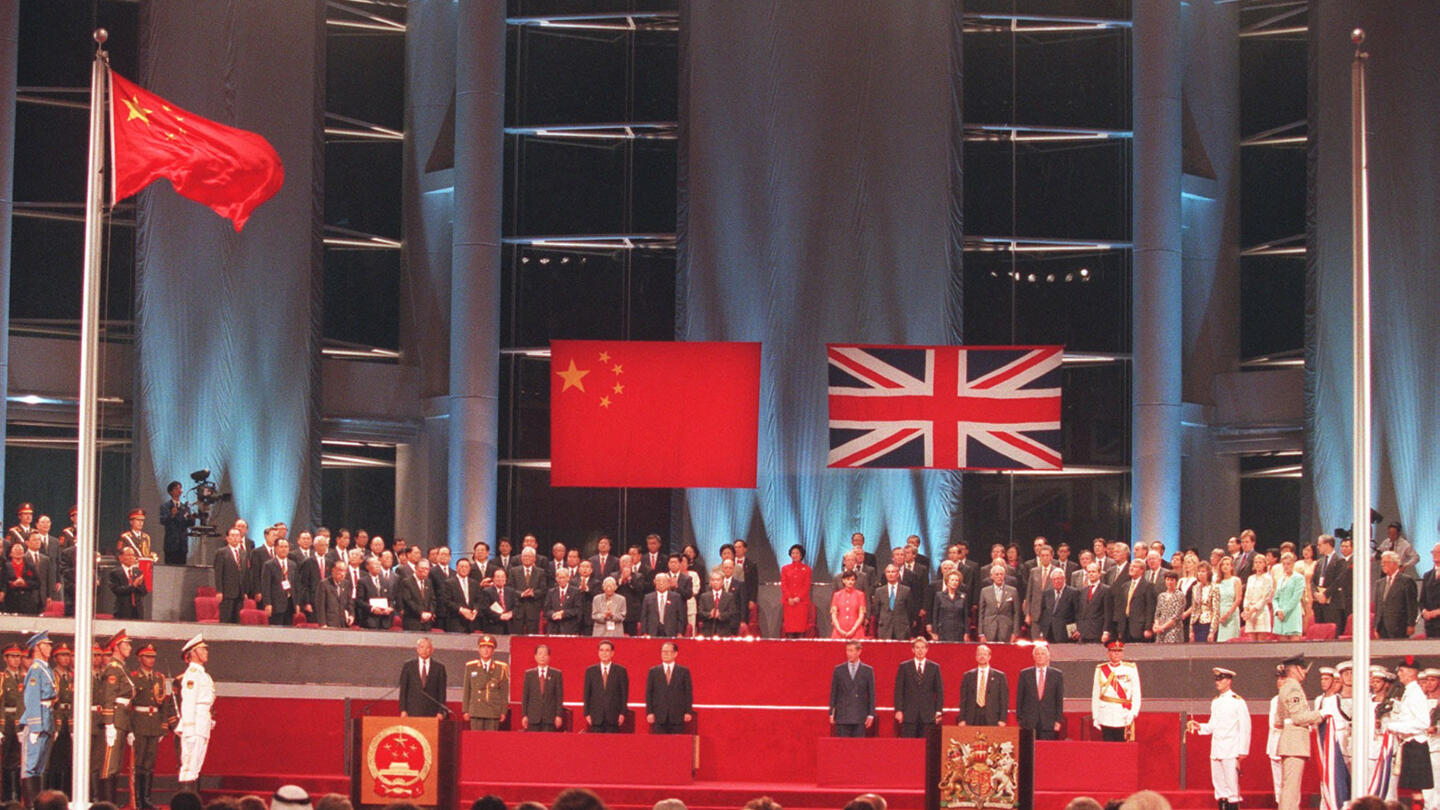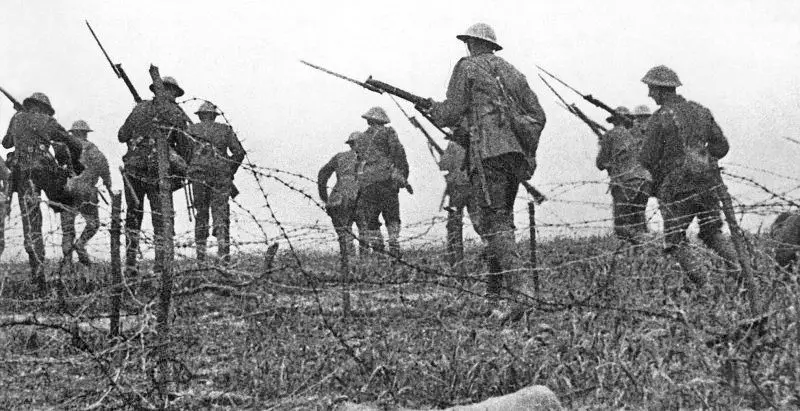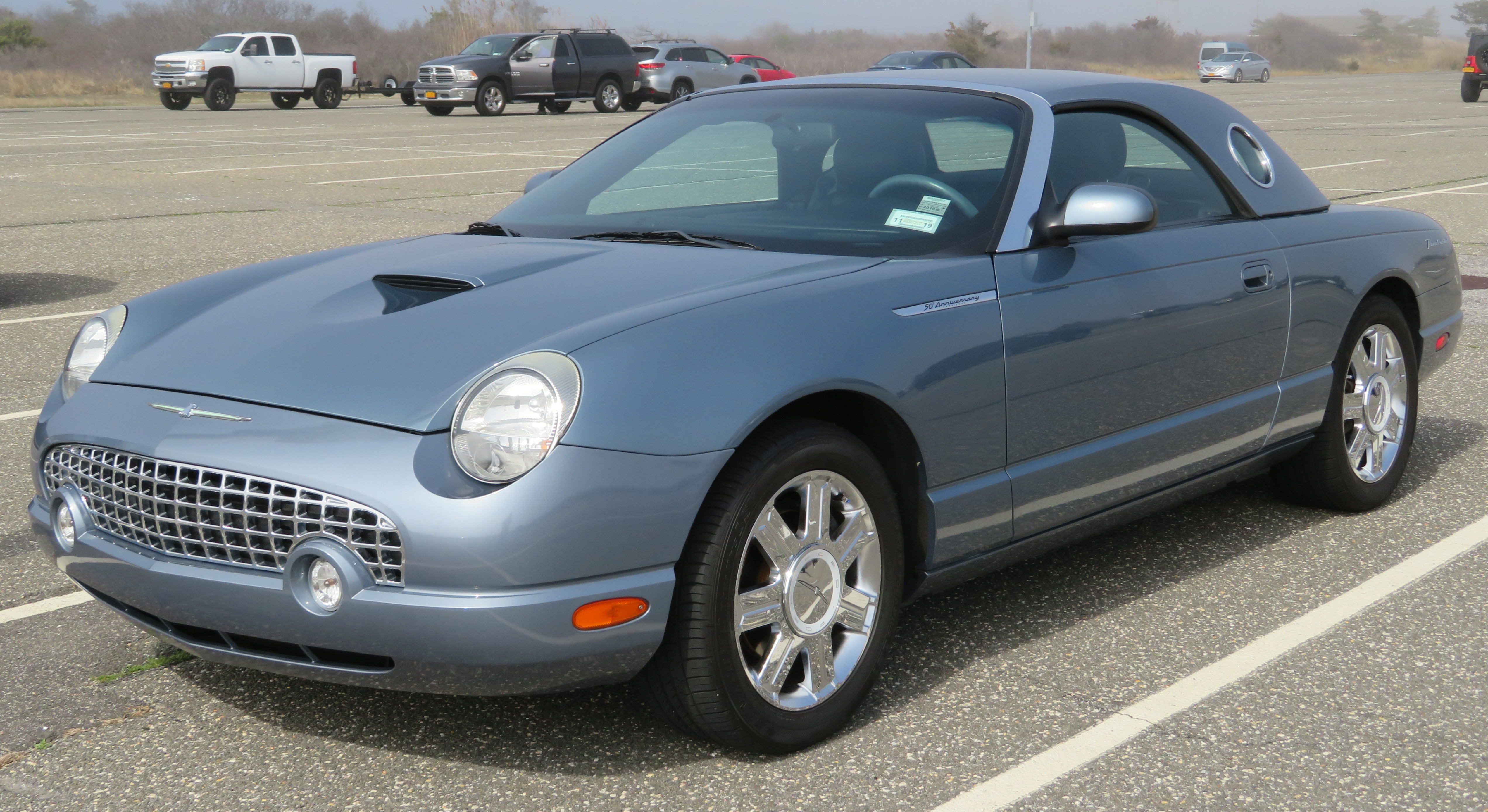
Hong Kong returned to China
At midnight on July 1, 1997, Hong Kong reverts back to Chinese rule in a ceremony attended by British Prime Minister Tony Blair, Prince Charles of Wales, Chinese President Jiang Zemin and U.S. Secretary of State Madeleine Albright. A few thousand Hong Kongers protested the turnover, which was otherwise celebratory and peaceful.
In 1839, Britain invaded China to crush opposition to its interference in the country’s economic, social, and political affairs. One of Britain’s first acts of the war was to occupy Hong Kong, a sparsely inhabited island off the coast of southeast China. In 1841, China ceded the island to the British with the signing of the Convention of Chuenpi, and in 1842 the Treaty of Nanking was signed, formally ending the First Opium War.
Britain’s new colony flourished as an East-West trading center and as the commercial gateway and distribution center for southern China. In 1898, Britain was granted an additional 99 years of rule over Hong Kong under the Second Convention of Peking. In September 1984, after years of negotiations, the British and the Chinese signed a formal agreement approving the 1997 turnover of the island in exchange for a Chinese pledge to preserve Hong Kong’s capitalist system. On July 1, 1997, Hong Kong was peaceably handed over to China in a ceremony attended by numerous Chinese, British, and international dignitaries. The chief executive under the new Hong Kong government, Tung Chee Hwa, formulated a policy based on the concept of “one country, two systems,” thus preserving Hong Kong’s role as a principal capitalist center in Asia.

WORLD WAR I
1916
Battle of the Somme begins
At 7:30 a.m., the British launch a massive offensive against German forces in the Somme River region of France. During the preceding week, 250,000 Allied shells had pounded German positions near the Somme, and 100,000 British soldiers poured out of their trenches.

19TH CENTURY
1898
The Battle of San Juan Hill
As part of their campaign to capture Spanish-held Santiago de Cuba on the southern coast of Cuba, the U.S. Army Fifth Corps engages Spanish forces at El Caney and San Juan Hill. In May 1898, one month after the outbreak of the Spanish-American War.

19TH CENTURY
1867
Canadian Independence Day
The autonomous Dominion of Canada, a confederation of Nova Scotia, New Brunswick, and the future provinces of Ontario and Quebec, is officially recognized by Great Britain with the passage of the British North America Act. July 1 becomes known as Canada Day.
/cdn.vox-cdn.com/uploads/chorus_image/image/61437017/sony-original-walkman-tps-l2.0.1406747932.0.jpg)
ART, LITERATURE, AND FILM HISTORY
1979
The first Sony Walkman goes on sale
The transistor radio was a technological marvel that put music literally into consumers’ hands in the mid-1950s. It was cheap, it was reliable and it was portable, but it could never even approximate the sound quality of a record being played on a home stereo.
ART, LITERATURE, AND FILM HISTORY
1984
PG-13 rating debuts
On July 1, 1984, the Motion Picture Association of America (MPAA), which oversees the voluntary rating system for movies, introduces a new rating, PG-13. The initial rating categories were G (appropriate for all ages), M (for mature audiences, but all ages admitted).

CRIME
2003
Kobe Bryant accuser goes to police
A female employee at a Colorado resort goes to police to file sexual misconduct charges against basketball star Kobe Bryant on July 1, 2003. A few days later, an arrest warrant was issued for Bryant, and the ensuing case generated a media frenzy. On the night of June 30, 2003.

COLD WAR
1947
“Mr. X” article on Soviet Union appears in Foreign Affairs
State Department official George Kennan, using the pseudonym “Mr. X,” publishes an article entitled “The Sources of Soviet Conduct” in the July edition of Foreign Affairs. The article focused on Kennan’s call for a policy of containment toward the Soviet Union.

CIVIL WAR
1863
The Battle of Gettysburg begins
One of the largest military conflicts in North American history begins on July 1, 1863, when Union and Confederate forces collide at Gettysburg, Pennsylvania. The epic battle lasted three days and resulted in a retreat to Virginia by Robert E. Lee’s Army of Northern Virginia.

INVENTIONS & SCIENCE
2005
Last Ford Thunderbird produced
The last Thunderbird, Ford Motor Company’s iconic sports car, emerges from a Ford factory in Wixom, Michigan on July 1, 2005. Ford began its development of the Thunderbird in the years following World War II, during which American servicemen had the opportunity to observe sleek.

WORLD WAR II
1942
The Battle of El Alamein begins
On July 1, 1942, Field Marshal Erwin Rommel is brought to a standstill in the battle for control of North Africa. The First Battle of El Alamein begins. In June, the British had succeeded in driving Rommel into a defensive position in Libya.
TODAY IN HISTORY IN NIGERIA

1959 The first Nigerian currency, denominated in pound, ten shillings and five shillings were issued.
Comments
Post a Comment